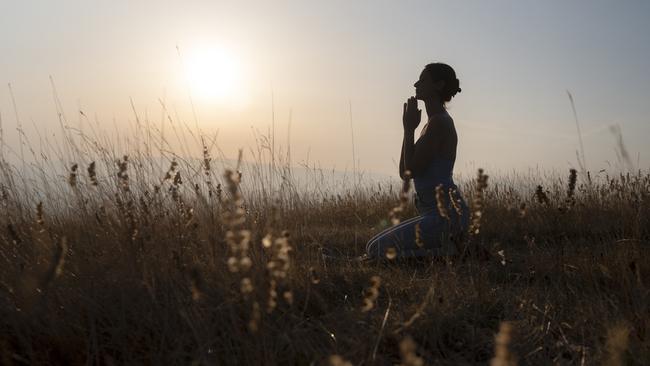Faith is declining — but could God make a comeback?
Godlessness has gained ground in the 21st century, it seems. But I wonder if this isn’t a temporary shift, a tidal flow, that will change in due course.

There was a time in my youth when God was everywhere. We prayed the rosary as a family every day, and went to mass every week. My early schooling was delivered by the Sisters of Mercy at St Thomas’ Terang. And it wasn’t just our family that was religious. It seemed the norm in the 1960s. I remember learning that some non-Catholic families said grace before meals. That wasn’t something our family of eight did, though. We were too impatient to eat!
At the pictures on a Saturday night God save the Queen was played, as it was late at night on TV. Here was an anthem that acknowledged the authority of God to spare and to save Australia’s sovereign. He alone had the power to do that, according to God save the Queen.
Back then God was present in much of what we did and did not do. We never swore as kids and we certainly didn’t blaspheme. Invoking the Lord’s name in anger or ridicule, I was sure, was one step away from the fires of damnation.
Later in my teenage years and into my twenties I saw things differently and drifted away from the church. And it wasn’t just me. There has been a general diminution in religious affiliation over decades in Australia. In the 2021 Census, 59 per cent of us reported a religious affiliation of some kind; a decade earlier this proportion was 76 per cent. Godlessness has gained ground in the 21st century, it seems. But I wonder if this isn’t a temporary shift, a tidal flow, that will change in due course; I wonder whether God isn’t still there, biding His time before staging a (glorious) rebirth of faith in Australia.
We acknowledge God’s authority via His association with terms like wrath, judgment, retribution, condemnation. (I have even heard of “God’s vengeance” – though I’m not sure I trust humanity to accurately report the will of God.) These harsh terms are balanced by our association of God with much softer terms like mercy, love, compassion and forgiveness.
It’s interesting, don’t you think, that there’s no equivocation with God? He either loves or He condemns. God must be very sure of Himself, or maybe it’s that our construct of an all-powerful force requires certainty when it comes to the tricky task of judging humanity’s many flaws and foibles.
The Germans have a delightful Christian name that honours God’s love: Gottlieb. But to my knowledge there is no German term to describe God’s condemnation. And why do we never speak of the wit of God? Surely omnipotence delivers a measure of creative insight that could, if He so chose, create sublime zingers. Indeed, he could go… professional (to quote Rowan Atkinson).
The reason why I say the recent diminution in faith could be reversed in coming decades is because it’s well known that religious belief increases later in life. And with millions of baby boomers about to breach the 80-mark, the national mood could soon shift.
The challenge for traditional religions will be, I am sure, to reinvent themselves to align with the values of those seeking salvation later in life. Perhaps not a reversion to the belief systems of the 1960s but something softer, less dogmatic – something that meets the needs of a rising market of those convinced they are soon to meet their maker.








To join the conversation, please log in. Don't have an account? Register
Join the conversation, you are commenting as Logout